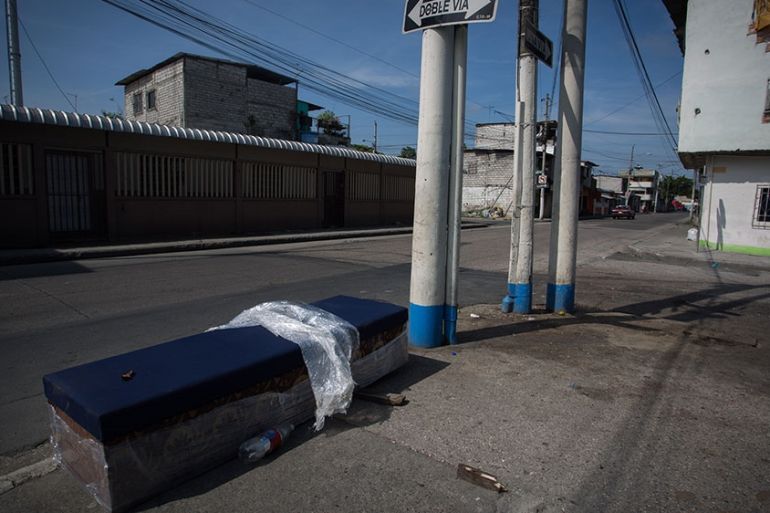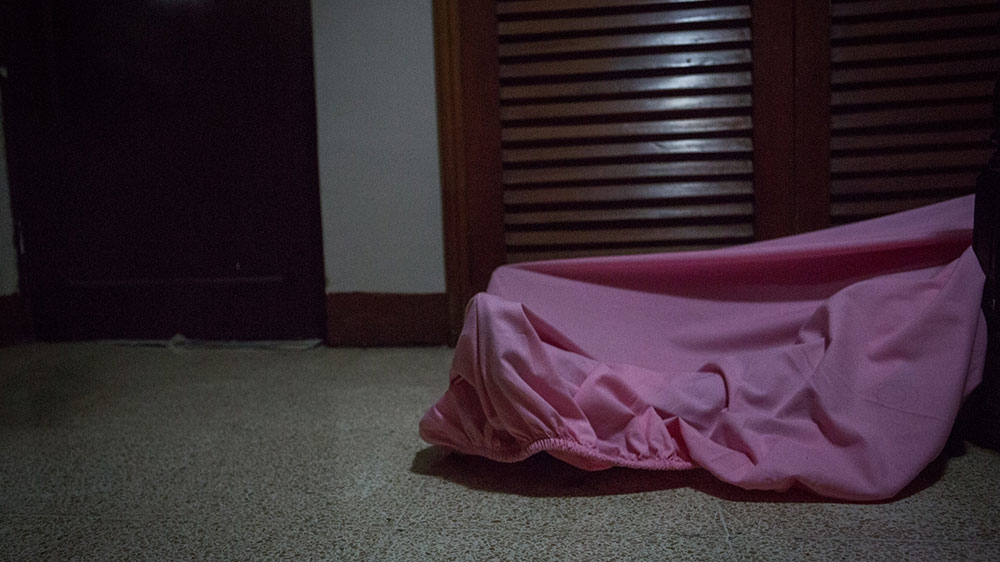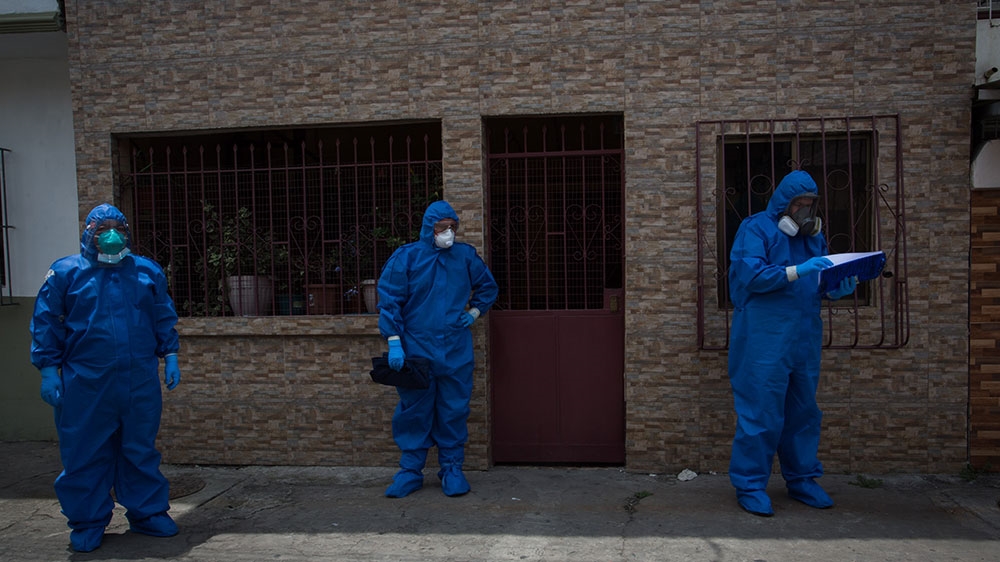When bodies piled up: Inside Ecuador’s first coronavirus hotspot
Guayaquil, one of South America’s first and hardest-hit cities, continues to feel the pandemic’s lasting effects.

Guayaquil, Ecuador – Patricia Marin Gines said the stench was unbearable.
“I cannot stand looking at him,” she said in April, referring to her 86-year-old father, whose body was laying on the floor of his bedroom in their house for more than two days. Authorities had yet to come and retrieve it.
Keep reading
list of 3 itemsPolice collect nearly 800 bodies from Ecuador’s virus epicentre
Indigenous race into Ecuador’s Amazon to escape coronavirus
“I have put a newspaper in the doorstep,” she added.
Bodies like Marin Gines’s father piled up as the COVID-19 pandemic raged in Guayaquil, Ecuador’s largest city, earlier this year. Hundreds of families were forced to keep their dead relatives’ bodies in their homes or on the streets for days until someone from the city could pick them up.
In March and April, trucks, cars, hearses and other vehicles lined the city’s streets, with coffins – often one stacked on top of the other in tow. Families who lost loved ones queued with their dead relatives’ coffins outside cemeteries, which had been overwhelmed by the sheer number of deaths.
The stench that haunted Marin Gines’s home was smelled around the city as well. The vile smell penetrated protective masks and sat in the 30-degree Celsius (86-degree Fahrenheit) heat.

Guayaquil was one of the first, and hardest hit coronavirus hot spots in Latin America.
More than 10,000 deaths were recorded in Guayas, the province where Guayaquil is located, during March and April, according to government data. Officials said this was nearly 6,000 more deaths than typically recorded under normal circumstances, authorities said. It is still unclear, however, how many died of COVID-19, the infectious disease caused by the novel coronavirus. Many others are believed to have died because they were unable to get proper treatment due to the city’s collapsed healthcare system.
The situation in Guayaquil has since mostly stabilised, and its strict quarantine eased, but the city continues to feel the virus’s lasting effects.
A city in mourning
At the height of the pandemic here, the city – known for its festive and lively atmosphere – was one in mourning.
At the entrance to one of Guayaquil’s cemeteries, people desperately looked for their lost loved ones. Several had been there for days. A similar scene was seen outside the city’s hospitals.
“My father died 20 minutes ago. He had COVID[-19] symptoms, but was never tested,” Jaime, a Guayaquil resident, told Al Jazeera in April as he sat with two others outside Los Ceibos hospital, one of the city’s so-called COVID-19-hospitals. His father was 65 years old.
Another man arrived with his dead father in the backseat. Presenting coronavirus symptoms, he died on the way, the son said.

Ecuador’s Health Minister Juan Carlos Zevallos blamed, at least in part, the city’s residents for not following recommendations from the government – an accusation decried by many.
“The virus was imported from Europe. Since it was vacation time, there were social events with people without symptoms. This meant that the virus spread very quickly. Unfortunately, these people did not listen to what the government said and did not isolate themselves for 14 days, so they quickly infected many people,” he told Al Jazeera at the time of the peak of the crisis in Guayaquil in April.
The Ecuadorian government announced the first positive case of COVID-19 on February 29, a 71-year-old woman who had arrived in Guayaquil two weeks earlier from Madrid. Although she had felt a fever and body pain during the flight, she was not examined by medical staff at the airport. She travelled to Babahoyo – a city an hour and a half away – and two days later she went to a family reunion. The woman died without knowing she was infected. Soon after, her sister and later their brother also died.
The so-called “patient zero” was far from the only person who came to Ecuador from countries affected by the novel coronavirus. Between February 1 and 14, according to Ecuadorian media, some 20,000 people arrived in Ecuador from Spain, Italy, and the United States. Ecuador did not tighten its restrictions on those arriving in the country until the middle of March.
Zevallos insisted action was taken on time. “Ecuador, together with El Salvador, was one of the first countries in Latin America to close airports. We acted on time, but people did not comply with our announcements,” he said.
Regardless of who or what is to blame, the pandemic has laid bare the country’s ill-prepared healthcare system, and the deep-seated inequalities that exist in cities like Guayaquil. Many of those affected by the coronavirus here were from working- to lower-class families, unable to afford or get treatment at the city’s private hospitals. Others are now jobless due to the harsh economic effects the pandemic has had on the oil-dependent economy.
For families like Marin Gines, however, the grief and long-lasting image of her father laying on the bedroom floor for days is almost too much to bear.
“He was a good father and husband,” she said of her dad.
“That he is treated like an animal in that way,” she added. “I feel guilty that my father can’t have a worthy funeral.”